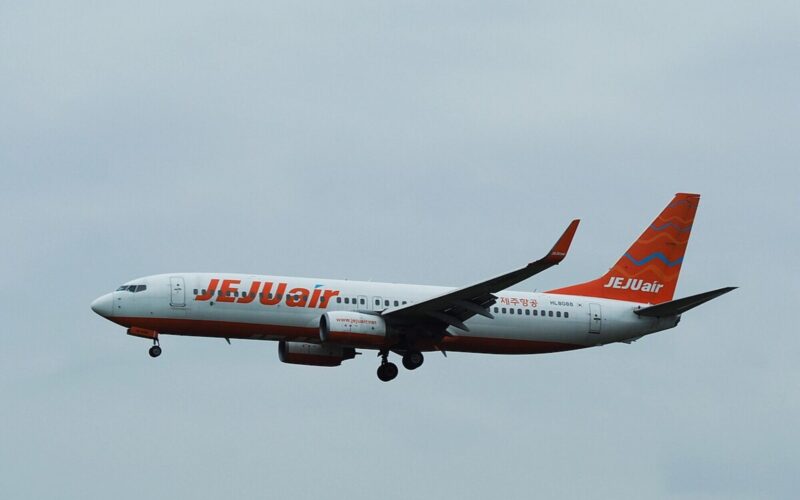The government of South Korea has ordered the inspection of all Boeing 737-800 aircraft operated by domestic airliners after 179 passengers died when a Jeju Air aircraft crashed during an emergency landing at Muan International Airport (MWX) on December 29, 2024.
The announcement was made by Joo Jong-wan, Aviation Policy Chief at the Ministry of Land, Infrastructure and Transport (MOLIT) during a press briefing at the Sejong Government Complex on the morning of December 30, 2024.
The interim government said it plans to thoroughly examine whether airlines are adhering to the regulations for the Boeing model. The audit will involve checking aircraft utilization rates, flight inspections and maintenance records, according to a report by Yonhap News, a South Korean news agency.
The Boeing 737-800 is widely operated by domestic low-cost carriers. Jeju Air operates the largest number of this model, with 39 aircraft in its fleet. Other airlines include T’way Air with 27, Jin Air with 19 and Eastar Jet with 10 aircraft.
The ministry said it plans to conduct “rigorous safety inspections” of Jeju Air following repeated landing gear issues. On December 30, 2024, another Jeju Air Boeing 727-800, flight 7C101, was forced to return to Gimpo International Airport (GMP) shortly after takeoff after suffering a landing gear issue similar to the one in the Jeju Air crash.
Why did the South Korean Jeju Air flight crash?
On December 29, 2024, A Jeju Air Boeing 737-800 crashed while attempting to make an emergency landing at Muan International Airport in South Korea. The aircraft overran a runway and burst into flames after hitting a wall. 179 of the 181 people on board were killed, making it the one of South Korea’s deadliest crashes.
Authorities are currently investigating the cause of the crash. Fire officials have said the crash may have been caused by a bird strike or bad weather. Jong-wan added that Jeju Air has a high aircraft utilization rate, which could have contributed to the crash.
The US National Transportation Safety Board will join the investigation. Additionally, Boeing and engine manufacturer CFM International have also been approached for cooperation.
Starting from December 29, 2024, a national seven-day mourning period has been declared. All New Year celebrations, concerts and other events have been canceled nationwide.

